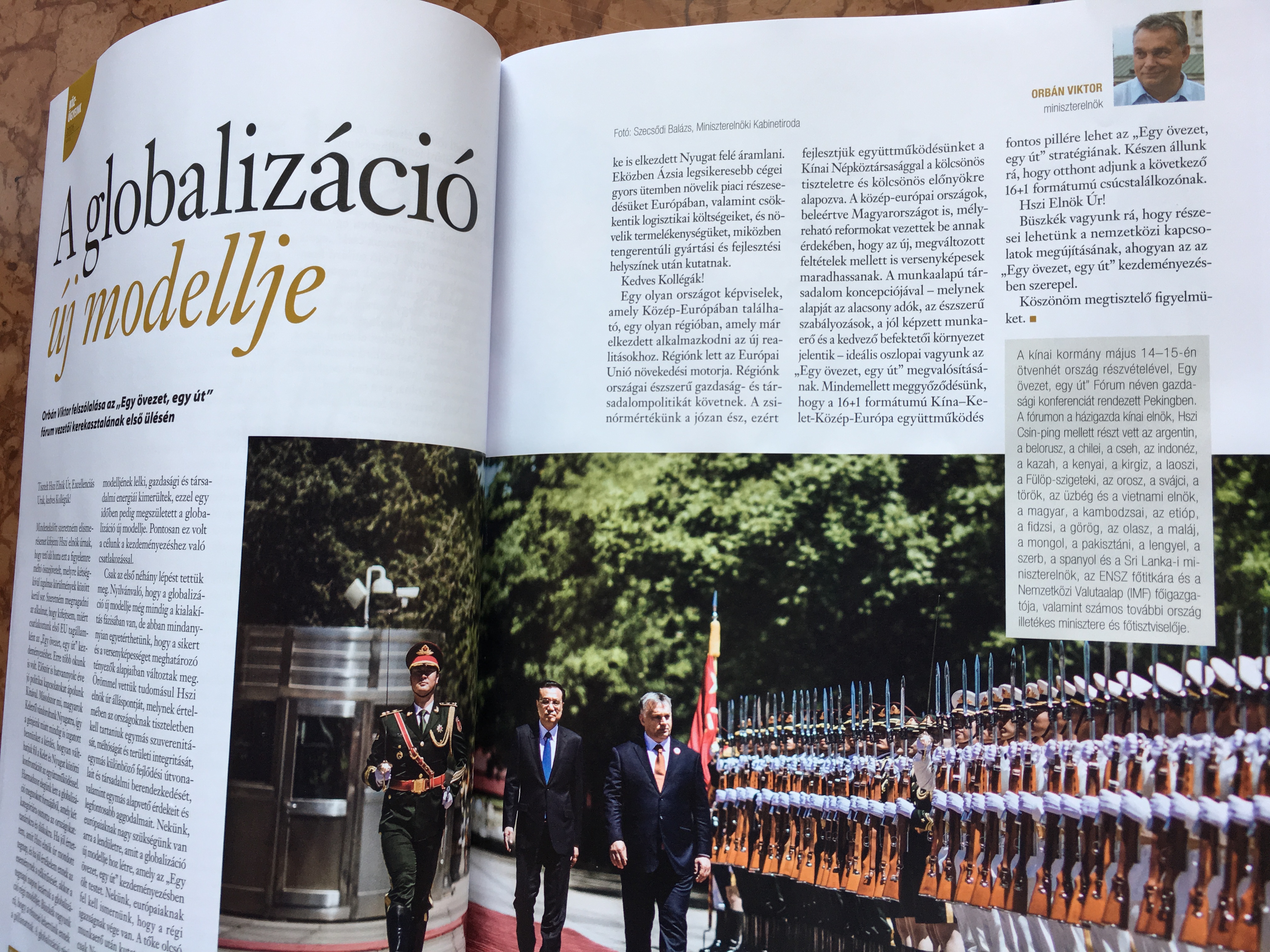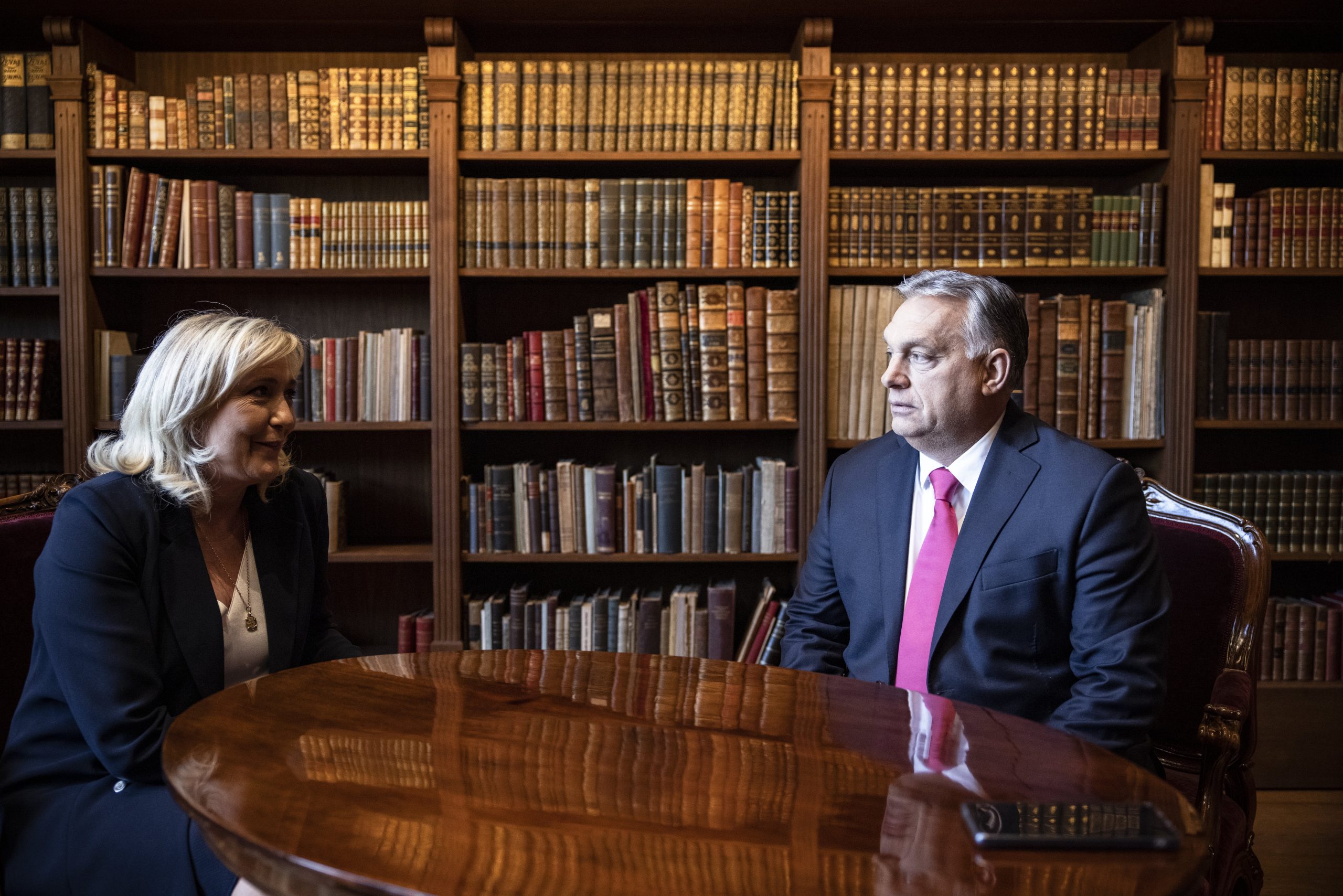
At the meeting Mr. Orbán said that Hungary was the first EU Member State to join the One Belt, One Road initiative, because for sixty-eight years it has cultivated good political relations with China. The Hungarians themselves had moved to their homeland in the West from the East, he said, and so “our gene pool has also always made us interested in the question of how to replace confrontation between East and West with cooperation”. Thirdly, the Prime Minister continued, “we had enough of the conventional form of globalisation, because it divided the world into two halves: teachers and students”. He added that, if he had correctly understood the words of Chinese President Xi Jinping and the forum’s objectives, the old model of globalisation has become obsolete, and Hungary is proud to have the privilege of being part of this moment in history. He summarised the situation by saying that “The spiritual, economic and social energy of the old model of globalisation has been exhausted, and at the same time, a new model of globalisation has been conceived. This was exactly our goal when we joined this initiative”. Mr. Orbán added that the new globalisation model is still in its development phase, but the very foundations of factors which determine success and competitiveness have changed.
“We were pleased to acknowledge President Xi’s position, based on which countries must respect each others’ sovereignty, dignity and territorial integrity, each others’ different paths of growth and social systems, and each others’ fundamental interests and most important concerns”, the Prime Minister said.
He stated that the European people need the dynamism which is being created by the new model of globalisation embodied in the One Belt, One Road initiative. “We Europeans must recognise that the old truth has come to an end”, he observed, pointing out that not only is capital migrating from West to East in its pursuit of cheap labour, but now the capital accumulated in the East has also begun to migrate towards the West. Meanwhile, he remarked, Asia’s most successful companies are rapidly increasing market share in Europe, reducing logistical costs and increasing productivity, while seeking overseas manufacturing and development sites.
The Prime Minister told the participants at the roundtable meeting that he represents a country in a region which has already begun to adapt to the new realities.
“Our region has become the European Union’s growth engine”, he said, explaining that the countries of Central Europe are enacting rational economic and social policies. Common sense is the yardstick, he emphasised, and this is why they are enhancing their cooperation with the People’s Republic of China, based on the foundations of mutual respect and mutual advantage.
He stressed that the Central European countries, including Hungary, have implemented comprehensive reforms to enable them to remain competitive in the new, changed circumstances. “With the concept of the workfare society – which is based on low taxes, reasonable regulations, highly-trained workers and a favourable investor environment – we are ideal pillars for the implementation of the One Belt, One Road initiative”, he stated.
Mr. Orbán said that he is convinced that the 16+1 format for cooperation between China and Eastern-Central Europe could be an important pillar of the One Belt, One Road strategy.
“We are ready to host the next 16+1 summit”, he added.
The transcript of his speech published in Magyar Krónika records that the Prime Minister concluded his contribution to at Beijing summit by saying that “We are proud of being part of the renewal of international relations that is embodied in the One Belt, One Road initiative”.


